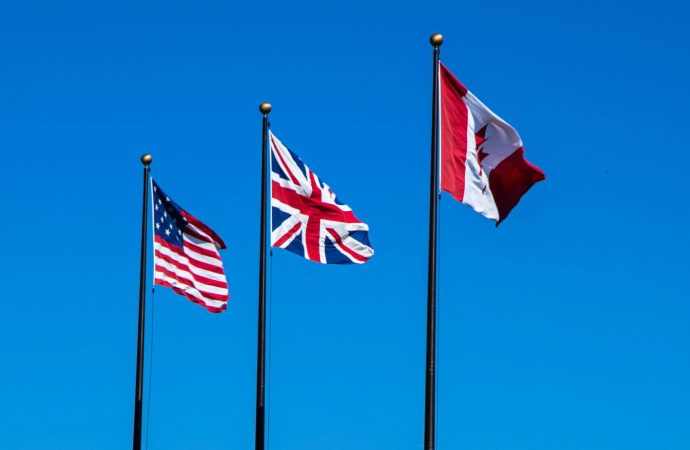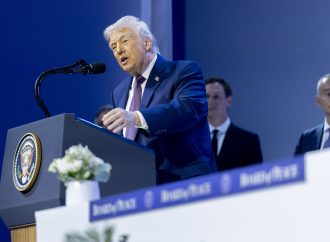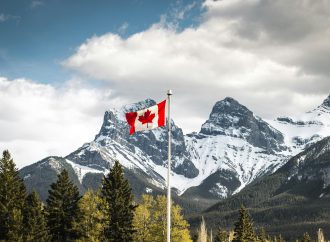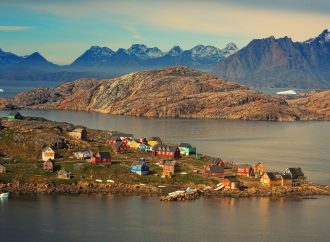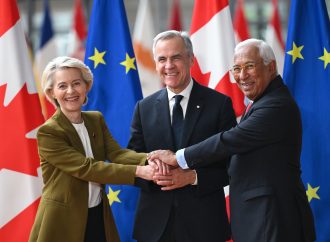Imagine that a foundation in a small European country, perhaps Denmark, sponsors a high profile series of debates with the purpose of providing a “forum for leading thinkers to debate the major issues facing Denmark and the world.” Most people, certainly Danes, would find it odd if those invited to debate the issues were overwhelmingly not Danes. In fact, it’s hard to imagine the intellectual and policy elites of any country, however small, establishing a forum to debate global affairs and largely excluding that country’s own thinkers from the debate. Any country, that is, except Canada.
The Munk Debates, sponsored by the Toronto-based Aurea Foundation, was established in 2008 and aims to bring some sparkle to debates on global issues. Held at Toronto’s Roy Thomson Hall, topics have included the role of religion in international affairs, climate change, humanitarian intervention, and the rise of China. Prominent debaters have included Tony Blair, columnist Christopher Hitchens and historian Niall Ferguson. The most recent debate, held just last week, featured American economists Larry Summers and Paul Krugman arguing over the prospects for the North American economy.
But it is a striking fact that although the stated purpose of the event is “to debate the major issues facing Canada and the world” (just as in our fictional example of Denmark, above), only 5 of the 30 debaters to have taken part in 8 debates—barely more than 15%–have been Canadian or resident in Canada. In fact, an overwhelming majority of the debaters—close to 70%—were either American or British. Such a bias does not arise naturally from the topics, only one of which (about U.S. foreign policy) had an exclusively American focus.
Moreover, this is not simply a private affair, whereby a local foundation or university college holds a lecture series. The Munk Debates are promoted widely and reported on through a partnership with the Globe and Mail, Canada’s “national newspaper”, and are taped and regularly broadcast on Canada’s public broadcaster, CBC Radio. It is not unreasonable, therefore, to think that Canadians or those resident in Canada might figure prominently in such discussions.
Or is it? Some might argue that we should welcome the fact that the world’s leading thinkers come to debate global affairs here in Canada, for the benefit of Canadians. In this view, we shouldn’t apply a Canadian content rule to debates on global affairs, as with our television.
This might be a compelling argument, if one felt that the organizers were in fact pursuing the world’s leading thinkers on global affairs. The fact that 70% are Anglo-American and 85% are men leaves room for serious doubt on that point. More to the point, however, if attracting global thinkers were the main purpose, it would seem to make sense to market the debate in that way, and drop the Canadian angle. Why not just say it is a series of debates on global affairs that happens to be held in Canada (like Davos happens in Switzerland)? But the promoters say the aim is to “enliven public discussion…of issues shaping the course of world events and Canada’s future.” (emphasis added)
Alternatively, some might agree that it would be preferable to feature Canadian thinkers in Canadian-sponsored debates on global affairs—certainly not exclusively, but in such a way as to ensure that the global issues in play were presented in ways that resonated with the Canadian public. This might even be an objective the organizers of the debate would share. So why can’t it be met?
The reason is unlikely to be the organizers’ inability to find Canadian thinkers qualified to debate these issues. Canadian citizens’ interest in global affairs is well known, a fact reflected in the prevalence and popularity of international relations and global studies at Canadian universities.
Perhaps then it is simply that the organizers believe that Canadian thinkers on global affairs lack the ‘bling’ or star quality required to pack Roy Thomson Hall. And who knows, they might be right: a Canadian audience might be unlikely to show up for George Jonas when they can get Charles Krauthammer, or Paul Martin when they can get Tony Blair. If this is the case, the organizers can hardly be blamed for focusing on those names that will pull in a crowd.
But either way, it is a sad comment on Canada that what is rapidly emerging as a leading forum in the country for public debate on global issues sidelines Canadians in that debate—because either the organizers, the audience, or both, lack the confidence to put them or see them on the stage. John Ralston Saul speaks of a “disturbing mediocrity” among Canadian intellectual elites; whether the sponsors or the audience are at issue, one can’t help but think that the Munk Debates proves his point.


